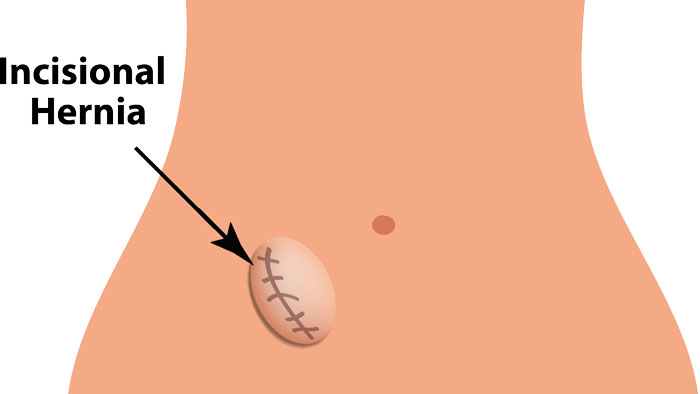After someone has surgery, the muscle being held together by sutures can weaken over time, resulting in a defect in the abdominal wall. This sometimes leads to tissue or internal organs pushing through the muscle into the abdomen.
When this happens, it is called an incisional hernia, which a type of ventral (or abdominal) hernia. Flank hernias, which occur on the side of your torso, are a type of incisional hernia and are treated like other incisional hernias.

The primary risk factor is weakness at the incisional site of a prior abdominal surgery. Other common causes include conditions, behaviors and activities that strain or weaken the abdominal wall, such as:
Signs and symptoms include:
Following a review of your medical and surgical history, your doctor will carefully examine your abdominal area. You may be asked to stand and cough so the doctor can see or feel a bulge that indicates a hernia.
If you have an incisional hernia, your doctor may order imaging tests such as:
These tests can help provide more details on the hernia's location and help determine the surgical strategy.
Depending on the size and condition of your hernia, treatment options vary. They include:
Surgical repair of an incisional hernia involves closing the weakness in the abdominal wall and reinforcing it, often with synthetic mesh material. The specific method used depends on your hernia's size and location, your general health and your expected level of future physical activity.
The surgeons at the Brigham and Women's Hospital Hernia Program are highly experienced in the full range of surgeries for incisional hernias, including:
To learn more about the Hernia Program's multidisciplinary approach to patient care or to schedule an appointment with one of our specialists, please call 617-525-9726. Our providers see patients at the following locations:
For over a century, a leader in patient care, medical education and research, with expertise in virtually every specialty of medicine and surgery.
About BWH